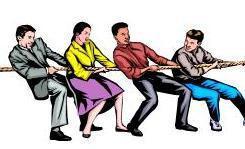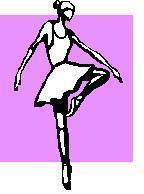Pat Bertram's Blog, page 194
June 21, 2014
Planning Epic Transcendental and Mystical Journeys
I am so beyond stressed out from taking care of my father’s latest medical crisis, my brother’s continued mental problems, and my own lack of sleep because of caring for them that I can no longer find comfort in planning epic transcendental and mystical journeys. But here is an update for those of you who have expressed concern about my idea of walking up the Pacific Coast to Seattle.
Although I would take precautions, there is no doubt such a walk could be dangerous, but for now, that is not something I want to consider. In the past eight years, I’ve watched three people die slowly and painfully from cancer, and now I am watching my 97-year-old father die even more slowly from old age. Not taking the trip because of possible dangers would be merely saving myself for even more probable trauma in the future. Life itself is a danger. It does terrible things to people, taking everything they have until there is nothing left but a husk of skin and bones.
Despite all my thinking and blogging about an epic adventure, there is a chance this walk is merely a fantasy. I am not sure I have the physical capabilities of walking so far or spending so much time outside. I am not sure I can carry enough water and emergency supplies. And to be honest, I’m not sure I really want to do it — the thought could simply be a means of mentally escaping an untenable living situation. Still, if I take the trip, or try to take it, I will be as prepared as possible without carrying the whole world on my back. I’m looking into such things as mylar emergency blankets, down vests, bear spray (I figure if it can ward off a bear, the spray could ward off any human predator, too). I am also researching the best way of carrying things, and no, it isn’t on the back, it’s on the head, but that I won’t even consider. I want to look as if I am on a walk, not backpacking through the wilderness or trekking around East Africa.
The walk is only one possible adventure I am considering. I started out planning an extended cross-country road trip, perhaps visiting the national parks, sometimes camping out with full camping gear and sometimes staying in motels to catch up on civilization’s offerings, and this is still a possibility, especially if my car is running. (If I were to walk up the coast, I’m not sure what I would do with the vehicle during the year I would be gone.) Another possibility is to somehow use my ancient VW as a means of promoting my books, maybe painting it by hand to attract attention or letting people who buy a book sign my car while I am signing their boo k. (Although I like that idea, I’m not sure how to market it. Marketing, unfortunately, is not my forte.)
k. (Although I like that idea, I’m not sure how to market it. Marketing, unfortunately, is not my forte.)
And it’s possible I wouldn’t want to stop taking dance lessons, in which case I would take shorter long walks to prepare for the epic walk or go on weekend camping trips to gain experience in the outdoors. (Besides, my dance teacher says she doesn’t want me to stop, and it’s been a long time since someone wanted me around just for me, not for what I could do for them.)
In other words, despite all my blogging, thinking, talking, I have no idea what I will do when my responsibilities end.
Well, I do know one thing. I will sleep, or at least try to. Being responsible for others’ care is exhausting.
***
Pat Bertram is the author of the suspense novels Light Bringer, More Deaths Than One, A Spark of Heavenly Fire, and Daughter Am I. Bertram is also the author of Grief: The Great Yearning, “an exquisite book, wrenching to read, and at the same time full of profound truths.” Connect with Pat on Google+. Like Pat on Facebook.
Tagged: caregiver, dance lessons, mystical journey, sleep, stress, walking up the Pacific Coast


June 20, 2014
A Three-Letter Word for Freedom
I don’t drive a lot — less than 150,000 miles in 42 years — but still, a car is important to me. Our society is set up where a vehicle is essential to go the long distances our daily lives seem to require. It’s a way of carrying all the food and equipment we need, a way to keep in touch with far-flung families and friends, a way of extending our reach and renewing the views forming the backdrop of our lives. But even more than that, a car spells freedom.
My car conked out the other night (actually, it was the fuel pump that conked out), and so I’ve been without transportation, having to rely on friends to get me and my father to his various appointments and to round up the medications he needs. I’ve been without a car before when it’s been in the shop, sometimes for several days, and I used to revel in the freedom of not having to care for such a large and needy object. Often I would go weeks without driving since I prefer traveling on foot when possible. But today, I’ve been antsy, waiting for the mechanics to call and tell me the car is fixed.
prefer traveling on foot when possible. But today, I’ve been antsy, waiting for the mechanics to call and tell me the car is fixed.
Even though I might not have driven today since my father needs me here, I feel trapped not having the car around in case I felt the urge to escape my life for just a few minutes. A car is a promise that we can go farther and faster than ever our feet could carry us. It’s a promise that life awaits beyond the confines of our responsibilities. It’s a promise of adventure, fun, freedom.
The irony of this situation is that I’ve been thinking about walking up the coast to Seattle, a trip that might take me a year, and the thought of not having to deal with a car and whatever mechanical and maintenance issues that might arise on a long trip has been refreshing. And here I am fretting over the absence of my car. (I know I’m overusing the word “car,” but it’s too old and bedraggled to merit the appellation of “vehicle.”)
So here I wait.
Is that the phone I hear? No, just my imagination calling me.
***
Pat Bertram is the author of the suspense novels Light Bringer, More Deaths Than One, A Spark of Heavenly Fire, and Daughter Am I. Bertram is also the author of Grief: The Great Yearning, “an exquisite book, wrenching to read, and at the same time full of profound truths.” Connect with Pat on Google+. Like Pat on Facebook.
Tagged: a car is a promis of freedom, car and freedom, car and vehicle, fuel pump


June 19, 2014
Danceless
Today I missed dance class for the first time since I began taking lessons, and I feel bereft, as if I misplaced something I can never get back. I can go back to class, of course, but today’s classes were special in the way that all moments are special — each is a treasure, a singular occasion, that will never happen in exactly the same way twice.
More than that, dance is currently my savior, helping me get through the daily traumas of my life, and there have been more traumas than usual lately, especially the past 22 hours, so I needed those classes more than ever.
And yet, here I sit . . . danceless. Even if I wanted to practice the dances I’ve learned, I couldn’t. I’m exhausted.
 I know you’re dying to know what this is all about, so I’ll tell you — it’s just life.
I know you’re dying to know what this is all about, so I’ll tell you — it’s just life.
More specifically, my car stopped running as I started out on my way to meet up for the Sierra Club walk last night. No gas seemed to be getting to the engine, which leads me to assume the fuel pump broke down. Not a problem, really, since I have emergency road insurance, and they will tow the car to be fixed.
What was a problem is that a few minutes after I coasted back down the hill and into the garage (how resourceful am I!), my father went through a minor medical emergency. I was up all night dealing with both him and my brother who seemed to sense the chaos. Early this morning my father decided he needed to go to the hospital via ambulence. I spent hours at the emergency room with him, but they didn’t want to admit him, so the rest of the day was spent begging rides from the hospital for both of us, rides to the pharmacy for his antibiotics, and then to another pharmacy because the first had no pharmacist on duty. (How can a major pharmacy not have a pharmacist on duty? Strange, that.) And to top it off, I had to forgo a treat I was looking forward to.
I sound selfish, don’t I? Well, that’s life, too.
Temporarily, all is quiet. Both men seem to be resting, and me . . . I’m here on this blog, trying to make sense of it all.
***
Pat Bertram is the author of the suspense novels Light Bringer, More Deaths Than One, A Spark of Heavenly Fire, and Daughter Am I. Bertram is also the author of Grief: The Great Yearning, “an exquisite book, wrenching to read, and at the same time full of profound truths.” Connect with Pat on Google+. Like Pat on Facebook.
Tagged: dance lessons, dancing, emergencies, tramaus of life


June 18, 2014
My Polarized Life — The Profound and the Profane
I’m sitting here trying to think of something uplifting to say. It’s not that today is a bad day, it’s just that like all my days, it’s too polarized — from the profound experience of learning to dance to the profane experience of life in my father’s house.
My father is 97 years old and is doing well — he gets up and can walk around by himself, can even take off the oxygen for a few minutes if he needs to go beyond the tether of the tubing. He mostly looks after himself, but the every day aspects of life are beginning to defeat him. He has a hard time concentrating and remembering, though these lacks are due to congestive heart failure and age, not Alzheimer’s. (He recently took and passed an Alzheimer’s test.) Still, there are always personal things that he needs me to take care of, such as shopping and cooking what few cooked foods he eats. There are frequent house matters for me to take care of such as bad television, phone, and computer reception. And there is my dysfunctional homeless brother who is currently camping out in the garage.
For some reason — perhaps because I am here — my brother delights in tormenting me, calling me childish names such as “Porky” and “Lard Ass” as well as more adult-rated names. He is obviously suffering, and I am trying to be kind to him, even when he graffities car and bangs on my windows for hours at a time, but I have no idea what he really wants. Even if I did know, I’m not sure I could do anything for him. His problems are way out of my ability to comprehend. His relationship with his problems is even harder to fathom. He likes his “evil” side. He thinks it’s the best part of him, and perhaps it is. His core personality seems to be humble and self-effacing, helpless, even, like a bewildered little boy stuck inside a grown man’s decaying body. For sure, he has no interest in getting help to balance himself out.
 I sometimes think of moving on and leaving my father and brother to fend for themselves, but I’m not sure I want to be the sort of person who can walk out on her aged, increasingly confused father and leave him to care for himself. (My brother sure couldn’t do anything to help. He doesn’t seem to be able to recognize that anyone but himself needs help.)
I sometimes think of moving on and leaving my father and brother to fend for themselves, but I’m not sure I want to be the sort of person who can walk out on her aged, increasingly confused father and leave him to care for himself. (My brother sure couldn’t do anything to help. He doesn’t seem to be able to recognize that anyone but himself needs help.)
Besides, if I moved on, I’d have to give up dancing. The irony is that by being here in this bizarre household, I have the freedom to indulge my newfound love of dancing. If I left, I’d have to get a job, which would leave me no time or energy for dance classes, and for now, dancing is important to me. It feels like a pilgrimage, a spiritual journey. It has lessons to teach me beyond the discipline of the basic steps and the joy of the choreographed dances I am learning, though I’m not sure what those lessons are. I might never know since much of dance is subliminal, needing the focus of both the body’s mind as well as the mind’s mind and perhaps even the soul.
As Shirley MacLaine said, “Dance is an art that impends on the soul. It is with you every moment, it expresses itself in everything you do.”
Whatever lessons I learn from dance will be with me long after the memories of this household have faded. Dance is that important. And so I continue this polarized existence, paying for the profound privilege of dancing with the profanity in the rest of my life.
***
Pat Bertram is the author of the suspense novels Light Bringer, More Deaths Than One, A Spark of Heavenly Fire, and Daughter Am I. Bertram is also the author of Grief: The Great Yearning, “an exquisite book, wrenching to read, and at the same time full of profound truths.” Connect with Pat on Google+. Like Pat on Facebook.
Tagged: dancing, dancing as a pilgrimage, importance of dance, Shirley MacLaine and dancing


June 17, 2014
When Life and Writing Overlap
Many writers claim they feel compelled to write. I am not one of them. I either write or don’t write depending on whether there is anything “real” going on in my life or not. Most of the time, real life is going on, so I feel no need to write. (Except for blogging, of course. I do that every day no matter what.)
There is one thing that does compel me to write fiction and that is when a story gets in my head and writing it is the only way to clear it out of my mind.
I’ve been planning to write a story about my exercise group, and I can’t write it until I’ve finished another, non-writerly project. (I am so not a multi-tasker!) Meantime, the story goes round and round in my head as I try to figure out the logistics of the plot. For example, I thought I knew who the murderer is, but he turns out to be a secondary gunman, someone who will  be caught up in the police investigation. I did figure out what the victim was doing at the studio, how she got inside, when she was killed, and why she was wearing what she was wearing. The murderer is still up for grabs.
be caught up in the police investigation. I did figure out what the victim was doing at the studio, how she got inside, when she was killed, and why she was wearing what she was wearing. The murderer is still up for grabs.
Besides trying to figure out the story, I’ve been researching what will happen to those of us who find the body. Will the cops simply take names and contact information? Will they keep us near the scene? Take us down to the police station? It’s amazing how many mysteries are from the POV of cops or the cozy little old (and sometimes cozy young) woman who is playing amateur detective. Little is written about the moment-to-moment demands on the would-be witnesses. In movies, TV shows, books, you see the witnesses, bystanders, body watchers/catchers/snatchers or whoever already talking to the cops. How did they get to that point?
I know it’s time to write the story to get it out of my head when strange thoughts start ricocheting around in my brain, thoughts like, “I don’t have to do the research to find out what will happen to us witnesses. When the cops come to the studio after the murder, I’ll be able to see first hand what they do to us.”
Yesterday I even heard myself thinking, “I better clean the house. If the cops come here, I don’t want them to know how messy I am.”
I’m sure some of these thoughts are showing up because real life will overlap fiction. The women in my dance class are all part of the story and I . . . well, I am the narrator, a suspect, possibly the amateur detective. (Someone even suggested I should be the killer. It’s a clever twist, but Agatha Christie already used the ploy in The Murder of Roger Akroyd and besides, it felt like a betrayal when she did it, and I don’t like cheating my readers.)
Whatever the reason for the stange thoughts, I’ll be glad when it’s time to start putting the story on paper and out of my head. It’s getting just a bit confusing.
***
Pat Bertram is the author of the suspense novels Light Bringer, More Deaths Than One, A Spark of Heavenly Fire, and Daughter Am I. Bertram is also the author of Grief: The Great Yearning, “an exquisite book, wrenching to read, and at the same time full of profound truths.” Connect with Pat on Google+. Like Pat on Facebook.
Tagged: amateur detective, preparing to write a novel, The Murder of Roger Akroyd, writing a novel, writing from life


June 16, 2014
A Tale of Two Insects
I watched an old CSI show the other day where Grissom told a story about a guy who found a spider swimming in his toilet. For a couple of mornings the guy watched the spider struggling to survive the maelstrom of flushing. One morning, the guy decided to rescue the spider. He took it out of the water and set it on the floor. The next day, he found th e spider dead. “Why,” Grissom asked, “did the spider die? Because one life impinged on another.”
e spider dead. “Why,” Grissom asked, “did the spider die? Because one life impinged on another.”
In my case, it’s ants I find, and my tale is about ants in the microwave. At this time of year, ants are an epidemic, so it’s difficult to keep on top of the infestation. (I’m telling you this so you don’t think the microwave is filthy. It isn’t.) I don’t like killing anything, not even insects, but if you don’t keep on top of the little critters, they go home and tell all their friends about a great party house they found, and the next thing you know, you have ants boogieing all over the place, even on your body when you sleep. Not a pleasant way to be awakened, that creepy-crawly sensation. (Cinnamon sprinkled in corners, by doors, and under windows usually keeps ants away, but a few manage to find other ways into the house.)
The same day I watched CSI, I opened the microwave door after heating some food and found a couple of Pharoah ants scurrying around inside. (Pharoah ants are more commonly known as sugar ants because they are attracted to sweets and greasy foods. Sounds like most of us, doesn’t it?)
Obviously, the ants were inside when I started the oven, so they should have been nuked, but they weren’t.
A bit of research eplained why they survived. Microwave ovens don’t heat evenly, so ants can hide in the cool corners. Ants have a relatively small amount of water inside their bodies compared to their outside surface, and apparently it’s the water that heats up in a microwave. This large body surface compared to their volume helps cool them down, so if they make a mistake and end up in a hot spot, their heat dissipates quickly.
So here we have a tale of two insects, one whose life was impinged on by another, and one whose life remained unimpinged.
The moral is . . . I don’t know. Perhaps that we have to live our lives the best way we know how, and if we impinge on other lives, so be it. It could even be that impinging is what life is all about.
***
Pat Bertram is the author of the suspense novels Light Bringer, More Deaths Than One, A Spark of Heavenly Fire, and Daughter Am I. Bertram is also the author of Grief: The Great Yearning, “an exquisite book, wrenching to read, and at the same time full of profound truths.” Connect with Pat on Google+. Like Pat on Facebook.
Tagged: CSI, Grissom spider story, spider swimming in a toilet, why ants don't get die in a microwave oven


June 15, 2014
Finding Something to Blog About Every Single Day
Today I celebrate my 1010th consecutive blog post. (I’ve published a total 1,629 posts, but the first 519 were before I started daily blogging.)
When a friend expressed amazement that I’m able to blog so much, I explained that it’s easier to blog if you write every day or at least on a regularly scheduled basis rather than doing it whenever you find something to say. If you blog sporadically, you feel as if your articles need to be important, so you don’t write. If you blog regularly, you relate a significant detail of your day, make your articles important by relating them to you, or find the youseetimmy in your topic.
(In the movie Speechless, Michael Keeton tells rival speechwriter Geena Davis that her speeches lack a youseetimmy. He explained that at the end of every episode of Lassie, Timmy’s father sat him down and explained the lesson of the tale, “You see, Timmy . . .)
Somedays, o f course, it’s hard for me to find a topic — no event of the day and no thought frittering around in my head seems worth focusing on, so I just write something, anything in the hopes of stumbling upon an interesting idea. I fail often, of course, in the interest department, but sometimes what I think is uninteresting captures the attention of the Google gods and I get a lot of views. Since apparently I have no idea what others will find appealing, by blogging every day, I increase my chances of saying something profound or maybe even popular.
f course, it’s hard for me to find a topic — no event of the day and no thought frittering around in my head seems worth focusing on, so I just write something, anything in the hopes of stumbling upon an interesting idea. I fail often, of course, in the interest department, but sometimes what I think is uninteresting captures the attention of the Google gods and I get a lot of views. Since apparently I have no idea what others will find appealing, by blogging every day, I increase my chances of saying something profound or maybe even popular.
Although blog experts stress the necessity for sticking to a single focus for a blog, I’ve not been able to do that since my foci have changed over the years. At first I wrote about finding a publisher, then I wrote about finding readers. For a while I wrote about writing but I quickly gave that up when I realized how pathetic it was for a neophyte author to be giving tips on how to write. Too many writers who haven’t a clue what they are doing tend to parcel out advice as if they were dealing out doughnuts. For example, one self-published author explained how to write a grieving character, and proceeded to show the character going through all the so-called stages of grief in one brief bit of dialogue. Not only was this person dispensing erroneous information about writing, the person was also dispensing erroneous information about grief. Eek. I’m not a neophyte author any more, but still, the idea of publishing writing tips seems pathetic. The only people who would be interested in such posts are other writers, and they are busy publishing their own writing tips.
Finally, I started writing about me — my grief, my life, my dreams, my plans, my activities — so now the focus of this blog is me. You don’t get a narrower focus than that! I mean, out of the 7,237,175,306 people in the world as of today, there is only one of me.
On the days when I have nothing to say or no inclination to say what I do have to say, discipline keeps me going. I’ve been blogging every day without fail for almost three years — 1010 days to be exact. Not to blog would be a significant disruption of the pattern of my days, and hence would give me something to blog about. Ironic, that.
Still, there will come a time when I forget to blog because my mind is elsewhere or a time when I cannot blog because my body is elsewhere.
Until then, here I am — finding something to blog about every single day.
***
Pat Bertram is the author of the suspense novels Light Bringer, More Deaths Than One, A Spark of Heavenly Fire, and Daughter Am I. Bertram is also the author of Grief: The Great Yearning, “an exquisite book, wrenching to read, and at the same time full of profound truths.” Connect with Pat on Google+. Like Pat on Facebook.
Tagged: 1010 days of blogging, blog topics, daily blogging, fidning something to blog about, how to blog a lot, postaday


June 14, 2014
Walking and Volkswalking
No wonder I do so much alone. I don’t understand the point of many group activities that people seem to enjoy.
Someone suggested I look into volkswalking since I walk a lot, but it doesn’t really appeal to me. It seems to be organized walking in groups, and I get that with the three-nights-a-week conditioning walk with the Sierra Club and an occasional hike with one of the hiking groups in the area. Volkswalking also supposed to be non-competitive walking, but anyone who completes a walk or a certain amount of mileage gets a badge or a stamp in a book (which they pay for themselves) to show  what they accomplished. To me, anytime you give people “achievement awards” for completing something, it’s competitive, even if there isn’t one so-called “winner.” Why else do you need a badge? You know you did it — a badge can’t give you that. Only you can.
what they accomplished. To me, anytime you give people “achievement awards” for completing something, it’s competitive, even if there isn’t one so-called “winner.” Why else do you need a badge? You know you did it — a badge can’t give you that. Only you can.
The premiere purported purpose of the various volkswalking clubs is to promote regular physical fitness for overall good health. So if you’re already walking, half of what they have to offer is negated. I suppose if I were in a new area and wanted to meet people, I’d go on one of the walks, but otherwise, if I were interested in the area, I’d just . . . walk.
That’s always been the benefit of walking — if you have two working feet and legs or reasonable facsimiles, that’s all you need. You just put one foot in front of the other, and you’re walking. What can be simpler?
Still, over 400,000 people take part in American volkswalking activities every year, so the bewilderment over the phenomenon is obviously mine alone.
So, if you’re interested in walking and need more incentive than simply going outside and putting one foot in front of the other for as long as you want (or can), then perhaps volkswalking is for you.
***
Pat Bertram is the author of the suspense novels Light Bringer, More Deaths Than One, A Spark of Heavenly Fire, and Daughter Am I. Bertram is also the author of Grief: The Great Yearning, “an exquisite book, wrenching to read, and at the same time full of profound truths.” Connect with Pat on Google+. Like Pat on Facebook.
Tagged: group walk, non-competetive walking, volkswalk, volkswalking, walking


June 13, 2014
When Water isn’t Water
I got a bottle of flavored water at the store the other day. At least, that’s what I thought I was buying. I’d occasionally pick up a simple sparkling mineral water with lime and cherry oils added, which I found to be a delightfully refreshing drink that offered the same bite as sodas without the junk ingredients, and I’d indulge myself from time to time.
This time, however, I didn’t notice a change in the label until I got it home. Instead of simply calling it “Sparking Mineral Water” they called it “Sparkling Water Beverage.” When I saw the word “beverage” alarms went off in my head. “Beverage” added to water is like “drink” added to juice. It means it’s not what it says it is. (A juice drink generally is short on juice and  long on sugar and artificial flavors.)
long on sugar and artificial flavors.)
The “beverage” turned out to have many different ingredients other than plain old water: carbonated water, citric acid, natural flavor, potassium citrate, aspartame, potassium benzoate, and acesulfame potassium.
If this particular beverage is water, then so is Coca Cola. The ingredients in Coke Zero are carbonated water, caramel color, phosphoric acid, aspartame, potassium benzoate, natural flavors, potassium citrate, potassium benzoate, and acesulfame potassium and caffeine.
The main difference between Coke Zero and “my” Sparkling Water Beverage seems to be the coloring and caffeine. Otherwise, they are basically the same sort of product.
I would never have bought the “water” if I had paid attention to the ingredients since I stay away from aspartame and rarely drink sodas.
I guess this will teach me to read all labels, especially the labels for something as innocuous as water.
***
Pat Bertram is the author of the suspense novels Light Bringer, More Deaths Than One, A Spark of Heavenly Fire, and Daughter Am I. Bertram is also the author of Grief: The Great Yearning, “an exquisite book, wrenching to read, and at the same time full of profound truths.” Connect with Pat on Google+. Like Pat on Facebook.
Tagged: aspartame, Coke Zero, juice drink, mineral water, read labels, sparkling water beverage


June 12, 2014
Interviews with the Police: Who Gets to Lie
I’m still researching what happens after a person or group of persons finds a dead body. A couple of people I know are asking friends and relatives who are in law enforcement what would happen, so I’m hoping I get some good information from them. Meantime, I’ve been researching actual instances of someone finding a body, and the questioning seems to range from nothing more than the cops taking name, age, occupation, and address of each person to five hours of interrogation. That’s a wide spread. It didn’t seem to make any difference if the finder knew the deceased or not — sometimes the stranger was interviewed longer than the relative.
Also, I’ve been researching interviewing techniques, which range from “I’m your best buddy; tell me all” to what amounts to terrorist tactics. (Though such tactics are not at all endorsed by the law, they do exist especially when it comes to interrogating  “hardened criminals.”) In the case of my book, I would think the buddy interview with a woman detective would work best since it plays against the stereotypes of both the horrifying interrogation and the woman cop who out-machos the men. (I know just the woman to play the cop, too — a beautiful and very helpful bank employee who was thrilled to let me use her unique name. She was also excited to become a detective, even if just literarily. When I was making changes to an account at the bank, I ended up telling her way more than I intended. I imagine it would be the same if she were a cop.)
“hardened criminals.”) In the case of my book, I would think the buddy interview with a woman detective would work best since it plays against the stereotypes of both the horrifying interrogation and the woman cop who out-machos the men. (I know just the woman to play the cop, too — a beautiful and very helpful bank employee who was thrilled to let me use her unique name. She was also excited to become a detective, even if just literarily. When I was making changes to an account at the bank, I ended up telling her way more than I intended. I imagine it would be the same if she were a cop.)
It seems as if someone who finds a body can be a bystander, witness, material witness, person of interest, or suspect, so it’s possible that any way I write the interview scene would be okay, but I still need to get the opinion of those who worked such cases. For one thing, it will be more authentic, and for another, the more information I get, the less I have to use my imagination, and that’s the hard part of writing for me. (Well, one of the hard parts. Sitting down and actually writing is the hardest part. I figure if I tell enough people about the book, I’ll shame myself into it so I don’t have to keep offering excuses why the story isn’t being written.)
I did find this article, which should be helpful: 47 Quick Tips for Better Investigation Interviews.
And I found out something very interesting. Russell L Bintliff, in Police Procedural: A Writer’s Guide to the Police and How They Work, says, “A suspect, even when waiving his/her rights and consenting to an interrogation or interview has no obligation under the Fifth amendment to tell the truth if it incriminates him/her. A witness, for example, may be guilty of a crime for lying or giving false information; however, a suspect can legally lie, give deceptive information, or sign false confessions or proclamations of innocence and he/she cannot be charged with a crime for doing these things.”
So I guess, before you lie to the police, find out if you’re a witness or a suspect. And yet, it seems that a witness who lies would soon become a suspect, so then the lies would be okay. (What’s the difference between a witness and a suspect? The Miranda warning? And yet sometimes the cops don’t Mirandize the suspect right away, so that makes the difference all in the cop’s head.)
Making the lie situation even weirder, cops are allowed to lie to obtain evidence. They can lie and tell you you’re free to go when you’re not. They can lie to extract a confession. They can fabricate evidence. The only place they cannot lie is in court. Cops always say that if you’re innocent you have nothing to fear, but it seems to me that if you’re innocent, you have everything to fear because it makes you vulnerable.
When it comes to lying, then, the only person who can be prosecuted for their untruth is a witness. No wonder witnesses lie. They have too much to protect.
I’ll have to see how I can work this information into my book. Could make an interesting twist somewhere along the line.
***
Pat Bertram is the author of the suspense novels Light Bringer, More Deaths Than One, A Spark of Heavenly Fire, and Daughter Am I. Bertram is also the author of Grief: The Great Yearning, “an exquisite book, wrenching to read, and at the same time full of profound truths.” Connect with Pat on Google+. Like Pat on Facebook.
Tagged: finding a dead body, investigation interviews, police and lies, police can lie, Russell L Bintliff, suspects and lies





